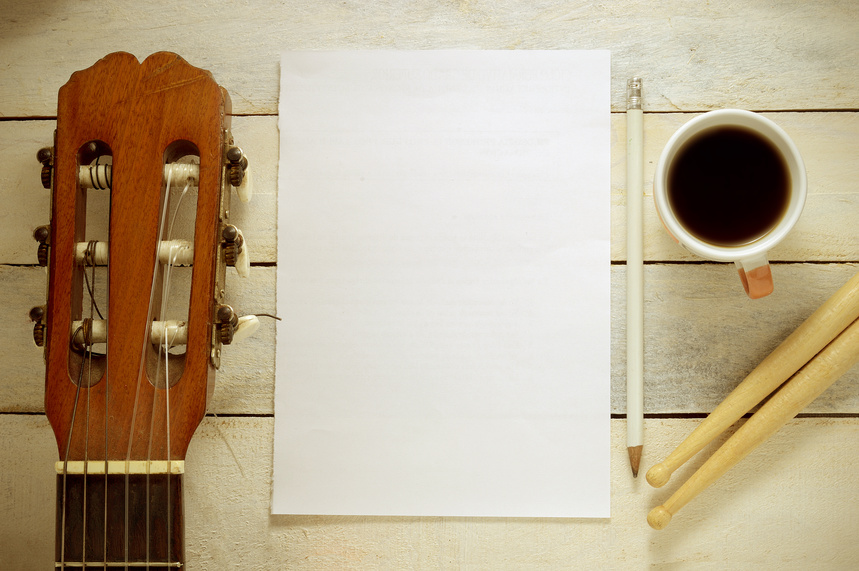
Practice time is limited. How should you spend your next session? Here’s a four-step exercise that will help you decide.
Songwriting is a complex and difficult craft. That’s because there’s no one way to write a compelling tune — there’s no one recipe, and the number of possible ingredients is overwhelming. There are countless ways to succeed, but there are just as many pitfalls. Once you’ve figured out the best way for you to write songs, because of course, everyone is different, you’ll then have to learn how to record them too. Thankfully, sites like https://strummerrecordings.com/ can help in that department but it’s still a little tricky, especially when you’re just finding your feet.
For a musician, lyricist, or artist of any kind, practice is essential. Practice makes you better and better at your craft over time.
Singer-songwriters especially have a lot to practice. Getting good at song craft takes time, but we all feel short on time already. So how should you use your limited practice time?
The answer mostly depends on what’s important to you. Are lyrics more meaningful to you than melody, or is melody more meaningful than lyrics? Do you dream of singing beautifully, or do you fantasize about writing lyrics that make your listeners think?
In this post I’ll lay out a three-part plan for overcoming your weakest points and taking your strengths even further.
Step one: What do you want to do?
First, let’s lay out all the experiences that interest you as a songwriter. These could be things you’re actively pursuing already, or they could be things you’d like to try in the future. You could:
- Write lyrics
- Compose music
- Sing
- Play an instrument
- Perform live
- Record music
On a piece of paper or a text file, write down all of the above items that apply to you.
Step two: Order them by favorites
Once you’ve captured all the items that you’re interested in, the next step is to pick favorites.
Which item excites you the most? Which one do you want to be best at? Write that one at the top of your list. My own first choice be “Write lyrics.”
Now, out of the items that remain, which one of those feels most compelling to you? List that one next. Continue on this way until you’ve arranged all the items into order.
For example, my list starts with “writing lyrics” first. After that comes “composing music”, “singing”, “playing an instrument”, “recording music”, and “performing live”.
What’s your list look like?
Step three: Set your short-term plan
When you’re deciding what to practice, look first at your weaknesses. Where are your biggest skill gaps? As I look at my list, I realize that singing is where I should focus my practice time first.
As my list of skills says, lyric writing has always been my favorite part of songwriting. At this point, though, I’ve written a few songs that I want to stand behind, and my singing skills aren’t great. Most listeners will be more likely to listen to a lyric if it’s delivered by a competent singer, so training myself in singing is my short-term priority in the coming months.
Look over your list of skills. Ask yourself:
Which one of these songwriting skills should I bring up to par first?
Step four: Remember your long-term plan
By this point, you have a list of songwriting skills — starting with your most important skill and ending with your least important. This list represents where you want to end up: as a great instrumentalist who happens to sing, or maybe a great lyricist who happens to play a pretty mean guitar. You’ve also targeted one skill on the list that needs your most urgent attention.
The long-term goal is to master your favorite songwriting skill. The other skills, for now, can be just good enough to keep your listeners from fleeing. For example, I want to write top-shelf lyrics and set them to melodies. I’ll focus most of my attention there, and I’ll get just good enough at performing and recording my songs to present them.
When the sun goes down each night, our lives are one day shorter. Days go by quickly. If you want to write songs that outlive you, don’t stretch yourself thin trying to master everything at once. First, focus on bringing your weakest points up to par. Then master the parts of this craft that will set you apart.
I hope making this list was a useful exercise. Use your list like a compass, to guide you day and night through the many practice sessions to come.
Hey Reader: What’s your list of songwriting priorities look like? Which skill do you want to master, and which ones are less important to you? Tell us about it in the comments below.